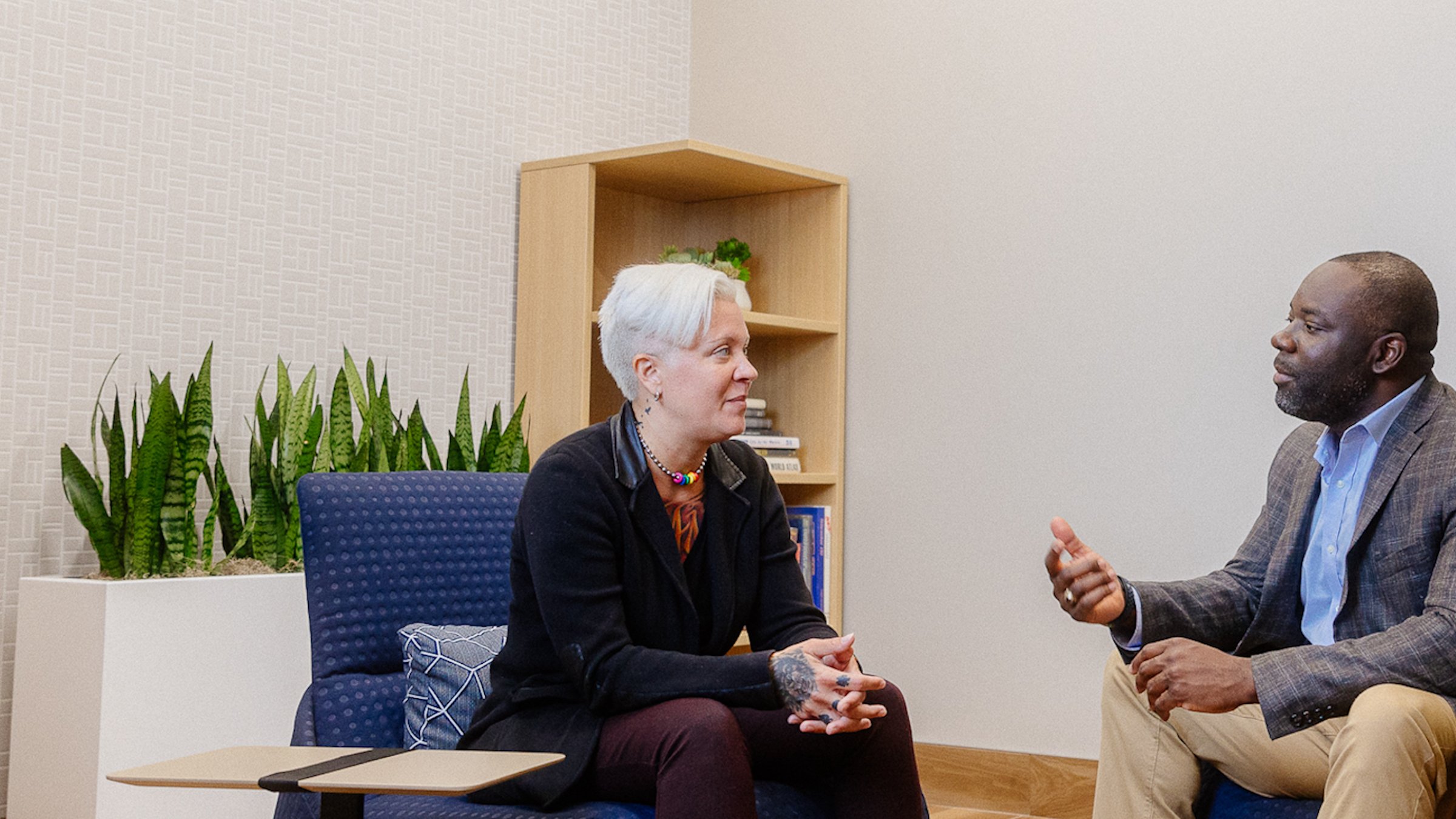Belonging is a fundamental human need. It’s different than fitting in. To quote author Brene Brown in her book, The Gifts of Imperfection: “Fitting in is about assessing a situation and becoming who you need to be to be accepted. Belonging, on the other hand, doesn't require us to change who we are; it requires us to be who we are.”
Belonging is being accepted for who you are. Fitting in is being accepted for being like everyone else.
Belonging is being somewhere you want to be and people already there want you to be with them.
Fitting in is being somewhere where you really want to be, but people don’t care one way or the other.
I get to be me if I belong. I must be like you to fit in.
Why Belonging is Important
At Rockwell, our culture is the foundation for our accelerated growth as we build better customer and employee experiences. Our commitment to diversity, equity and inclusion (DEI) is one of the ways we create a place where people can and want to do their best work.
Our culture shows up in how we interact with our teams and with each other, how we make decisions, in our outlook and our attitude.
There are five stages to feeling like you belong in a company and on a team:
- I feel welcome (people are nice to me)
- I am safe (I can share my thoughts and opinions without negative consequence)
- I am engaged (I am interested in my work, my team and the company’s success)
- I commit to being here (this is where I want to build my career)
- I belong here (I can and want to do my best work)
When employees move from engaged to committed, that’s when they feel like they belong. This is important because to attract and most importantly, retain top talent, companies must continually work to expand that feeling of belonging.
Ideal State, And How to Get There
To create better workplace communities where every employee feels they belong, our goal is to better understand how to create those communities, expanding our approach to have intentional focus on DEI to make more significant progress, faster.
With an advanced understanding of the behavioral aspects impacting inclusive and equitable cultures, we want our leaders to lean in to create safe spaces for all identities, while understanding their role in employee belonging.
We support our managers with a specific training on managing across difference, comprised of two sections:
- Inclusive Communication: Managers will develop tools to interrupt bias or discrimination through inclusive expression and cultivate tools to recognize and combat microaggressions.
- Managing Diverse Teams Inclusively: Understand what limits trust and psychological safety on a team, reflect on your identity and its influence on experiences at work, and reflect on the level of trust, psychological safety, and inclusion on your team.
Words are important; that’s how managers build an inclusive work culture in which people are heard, valued, and connected. This training is just one way to help leaders learn to have open, authentic dialogue, and create an environment of psychological safety.
The company benefits from a high-performing, diverse employee representation. Employees benefit from a culture in which they can thrive because their true identities are recognized and appreciated.
Want to know more? Learn more about the diversity, equity and inclusion efforts at Rockwell Automation and watch our Bold Conversations on Inclusion and Diversity video series.


